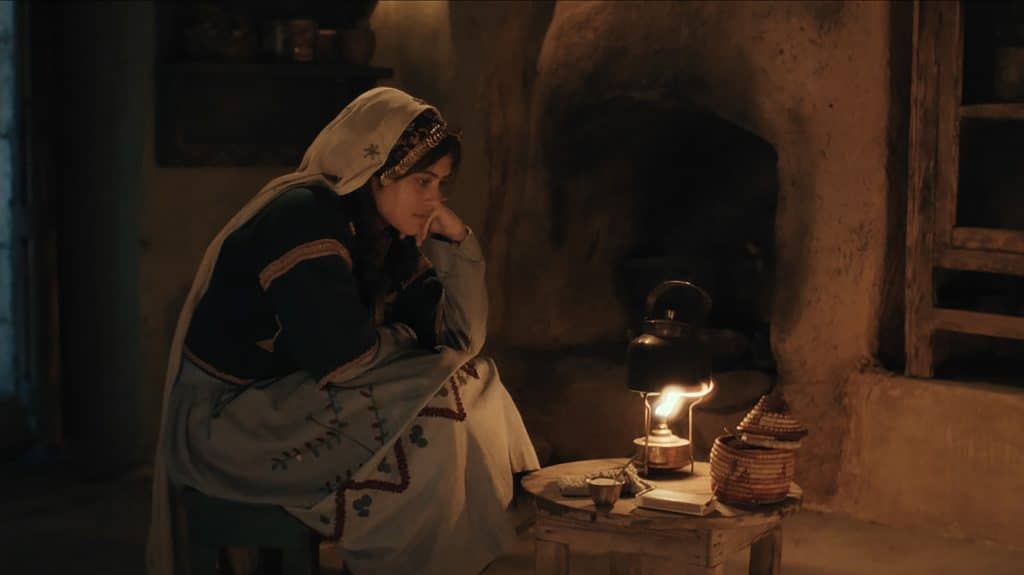
An overwhelming portion of the film happens in a confinement: a storeroom inside a Palestinian home in a hillside village. A 14-year-old girl is locked up by her father to save her from the Zionist military. Before she escaped, the teenager witnessed the massacre of an unknown Palestinian family through the cracks of the door and the small hole in the wall.
Farha, directed by Jordanian filmmaker Darin J. Sallam, is making headlines globally for its powerful portrayal of the Nakba, Arabic for Catastrophe. It is what Arabs call the ethnic cleansing of Palestine for the creation of Israel in 1948. And obviously, Israel is angered by the film and has launched a campaign to shut its global reach.
Meanwhile, Palestinians are lauding the “accurate” depiction of the horrific period in their history. Farha is a dramatized recreation of what Radiyyeh, a 14-year-old girl, witnessed during Nakba. The brutal ordeal was a story Sallam heard from her mother.
Although many books — fiction and non-fiction— have in detail addressed the Nakba, this is the first time a major film is created on the theme. Perhaps the lack of resources to cinematically capture the intensity and volume of the violence stopped filmmakers.
Sallam brilliantly tackled this dilemma of direct visualisation of the killing spree by concentrating the trauma on the protagonist’s face. Farha, played by Karam Taher, is a rebellious daughter of the mayor, who has won an argument with her father to study in the town. All her dreams are in the faraway urban city where she wants to study and become a teacher.
Her father, the mayor of the village, knows the Zionists are coming for their village and awaits help from the “Arab brothers”. He is always caught up in discussions about the imminent attack while Farha plans her urban adventure with her best friend Fareeda.
The film then abruptly changes into chaos. The attack began and Farha refuses to leave her father’s side in Fareeda’s car. The film in subtle ways shows the choices Palestinians had to make during the violence.
Abu Farha is burdened by the presence of his daughter while the village is attacked by ruthless forces. He locks her up in a storeroom and promises to come back.
Most of the films from Palestine usually work around the hostile life under Israeli occupation and the aftermath of Nakba. Many documentaries have tried to narrate the oral history of the brutal events that Israel denies.
Between 1947 and 1949, Zionist military forces attacked major Palestinian cities and destroyed some 530 villages. About 15,000 Palestinians were killed in a series of mass atrocities, including dozens of massacres.
What Farha sees from the window is one such massacre. Zionist forces with a Palestinian informer round up a family in her house and shoot them at point-blank.
The newborn child is left to die after the senior officer commanded his subordinate to not waste a bullet.
Farha makes attempts to break the door but fails as she slips into vertigo. Taher brilliantly plays the role, leaving the audience glued to her face.
Zionist military forces expelled at least 750,000 Palestinians from their homes and lands and captured 78% of historic Palestine. The remaining 22% was divided into what is now the occupied West Bank and the besieged Gaza Strip. The occupation continues in West Bank defying UN agreements and international laws.
There are some six million registered Palestinian refugees living in at least 58 camps located throughout Palestine and neighbouring countries now.
When she finally escapes, she finds no one is left alive in her village. In the end, there is no one arriving to rescue Farha. And she is not shown reaching a destination of safety. Sallam ends the movie where Farha remains on a road outside her village.
Farha is streaming on Netflix amidst growing calls to take it down by Israeli authorities.



